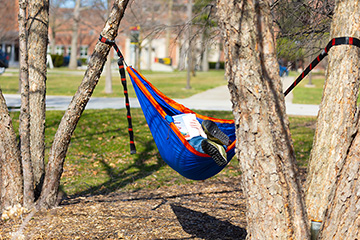Endangered species preserves Great Lakes water quality
Mussels play crucial role in aquatic ecosystems
Many Michiganders notice mussels throughout rivers and streams, but are they aware of the organisms living on the shells? Madison Dunlap, a Biology graduate student at Central Michigan University, has been studying the role native mussels play in supporting the health of our aquatic ecosystems. Her study was designed because mussels are understudied, and the mussel population is declining in Michigan. “70% of mussel species in North America are listed as either threatened, special concern, or endangered,” Dunlap said. If native mussels became extinct, water quality in the Great Lakes could decrease and overall ecosystems would be disrupted.

Dunlap’s goal is to take a closer look at the organisms living on the shells of mussels. She wants to know if each species of mussel has a unique array of organisms on its shells and therefore play a different role in aquatic ecosystems. To achieve this, Dunlap and her team of undergraduate and graduate students from the lab of Daelyn Woolnough, Ph.D. sampled five species of mussel from the Chippewa River. After collecting samples from 414 mussels with the use of snorkeling gear, Dunlap was surprised to find a much greater number than predicted based on previous literature. She is interested in analyzing these data to understand if each mussel species is home to a unique assemblage of organisms
Dunlap appreciates her collaborations with her advisor and the undergraduate and graduate students who contributed to this project. She also enjoyed communicating her research to a broad audience as a finalist in the CMU Three-Minute-Thesis competition in February 2025. Ultimately, Dunlap hopes the amount of research involving mussels continues to increase because they are endangered. “Knowing more about mussel biology and what ecosystem services they are providing gives a good basis of understanding, so we know why we’re conserving them and why mussels are important,” Dunlap said.



